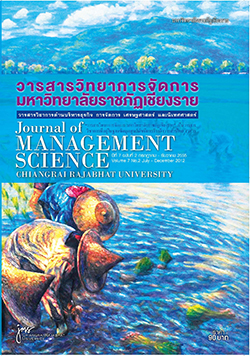เอกสารอ้างอิง
บริษัท ไทยพรีเมียร์ลีก จำกัด. (2554). ระเบียบและข้อบังคับว่าด้วยการจัดการแข่งขัน ฟุตบอลลีกอาชีพของประเทศไทย ประจาปี 2554. (แผ่นพับ). กรุงเทพมหานคร. บริษัท ไทยพรีเมียร์ลีก จำกัด. วรรณนา วงษ์วานิช. (2546). ภูมิศาสตร์การท่องเที่ยว. กรุงเทพมหานคร: มหาวิทยาลัย ธรรมศาสตร์. ศูนย์วิจัยกสิกรไทย. (2552). ท่องเที่ยวไทยปี ’52: ชูความหลากหลายขายท่องเที่ยวแนวใหม่. รายงานการวิจัย. 15(2515): 1-8. (ระบบออนไลน์) แหล่งที่มา http://www. kasikornresearch.com (สืบค้นเมื่อวันที่ 30 มีนาคม 2554) สิริโฉม พิเชษฐบุญเกียรติและคณะ. (2549). พฤติกรรมและความต้องการของนักท่องเที่ยว ไทยและนักท่องเที่ยวต่างชาติในนครคุนหมิง มณฑลยูนาน ประเทศสาธารณรัฐ ประชาชนจีน. รายงานวิจัยฉบับสมบูรณ์. สำนักงานกองทุนสนับสนุนการวิจัย. Chalip, Laurence, Christine B. Green, and Brad Andrew Hill. (2003). “Effects of Sport Event Media on Destination Image and Intention to Visit”. Journal of Sport Management. 17: 214–234. Faulkner, B., C. Tideswell, and A. Weston. (1998). “Leveraging Tourism Benefits from the Sydney 2000 Olympics, Keynote Presentation, Sport management: Opportunities and Change”. Fourth Annual Conference of the Sport Management Association of Australia and New Zealand, Gold Coast, Australia, 26–28 November. Gammon, Sean and Tom Robinson. (1997). “Sport and Tourism: A Conceptual Framework”. Journal of Sport Tourism. 4(3): 8-24. Garnham, B. (1996). “Ranfurly Shield Rugby: An Investigation into the Impacts of a Sporting Event on a Provincial City, the Case of New Plymouth”. Festival Management and Event Tourism. 4: 145-249. Gibson, Heather J. (1998). “Sport Tourism: A Critical Analysis of Research”. Journal of Sport Management Review. 1: 45-76. Gibson, Heather J., Cynthia Willming, and Andrew Holdnak. (2003). “Small-Scale Event Sport Tourism: Fans as Tourists”. Journal of Tourism Management. 24: 181-190. Green, B., and L. Chalip. (1998). “Sport tourism as the Celebration of Subculture”. Annals of Tourism Research. 25: 275–292. Higham, J. (1999). “Commentary-Sport as an Avenue of Tourism Development: An Analysis of the Positive and Negative Impacts of Sport Tourism”. Current Issues in Tourism. 2(1): 82-90. Hinch, T.D. and J.E.S. Higham. (2001). “Sport Tourism: A Framework for Research”. International Journal of Tourism Research. 3: 45-58. Hritz, Nancy and Craig Ross. (2010). “The Perceived Impacts of Sport Tourism: An Urban Host Community Perspective”. Journal of Sport Management. 24: 119-138. Irwin, R., and M. Sandler. (1998). “An Analysis of Travel Behavior and Event-Induced Expenditures among American Collegiate Championship Patron Groups”. Journal of Vacation Marketing. 4(1): 78–90. Kotler, Philip and Kevin Lane Keller. 2006. Marketing Management. 12th ed. New Jersey: Pearson Prentice Hall. Kurtzman, Joseph. (2005). “Sports Tourism Categories”. Journal of Sport Tourism. 10(1): 15-20. Nogawa, Haruo, Yasuo Yamaguchi, and Yumiko Hagi. (1996). “An Empirical Research Study on Japanese Sport Tourism in Sport-For-All Events: Case Studies of a Single-Night Event and a Multiple-Night Event”. Journal of Travel Research. 35(2):46-54. Walo, M., A. Bull, and H. Breen. (1996). “Achieving Economic Benefits at Local Event: A Case Study of Local Sport Event”. Festival Management and Event Tourism. 4:95-106. Weed, Mike and Chris Bull. (1997). “Influences on Sport Tourism Relations in Britain: The Effects of Government Policy”. Tourism Recreation Research. 22(2): 5-12. Yusof, A Minuddin, Mohd Sofian Omar-Fauzee, Parilah Mohd Shah, and Soh Kim Geok. (2009). “Exploring Small-Scale Sport Event Tourism in Malaysia”. Research Journal of International Studies. 9: 47-58.


